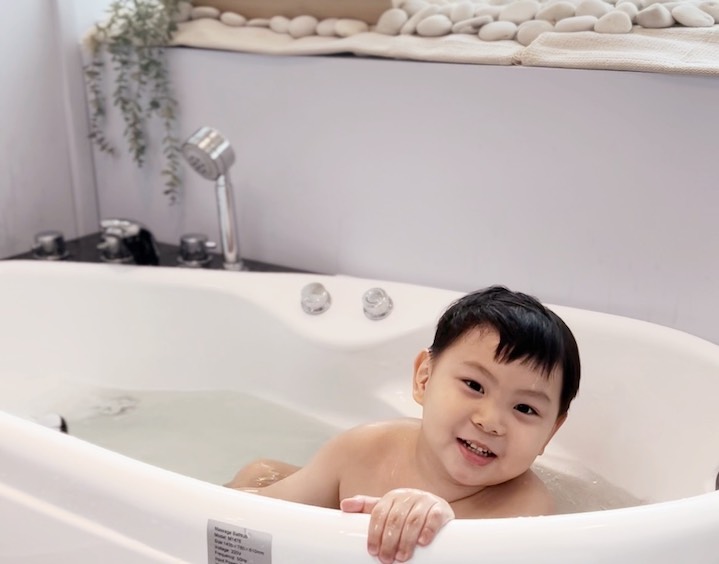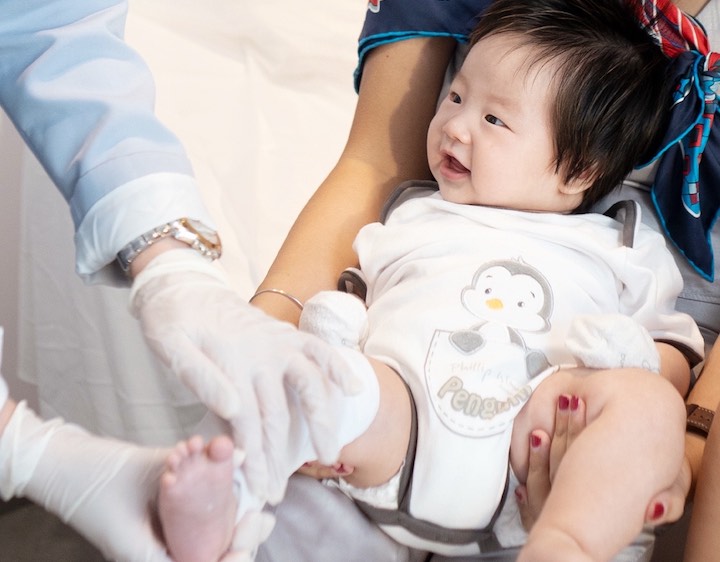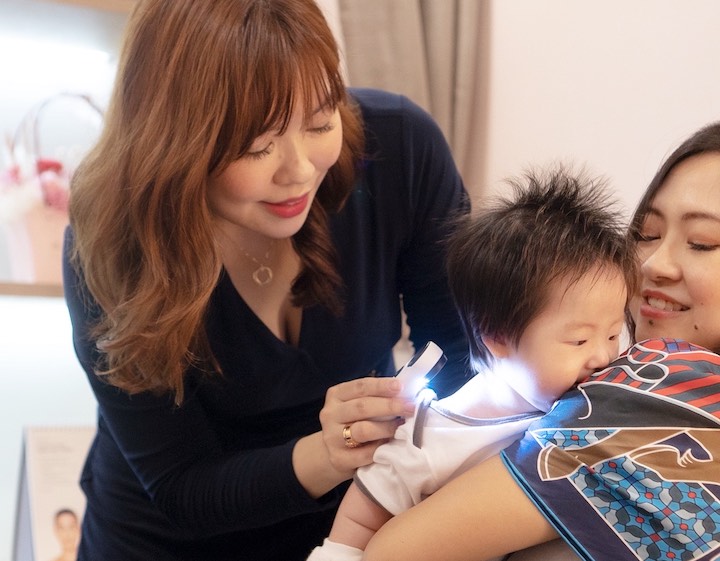
“Could my kid’s eczema be triggered by food allergies? Is swimming in chlorine pools OK? What about getting sweaty outside doing sports?” Your FAQs on eczema answered by Dr Lynette Lee of The Skincare Clinic
When your child has eczema it can be hard to stand by and watch them suffer. Mamas will want to do anything they can to understand the common eczema triggers so they can avoid their children’s eczema getting aggravated. We speak to an expert who knows her stuff when it comes to eczema. Dr Lynette Lee of The Skincare Clinic has a wealth of experience in treating babies, children and adults who suffer from eczema. Here she answers the most common questions about eczema.
Exercise and Eczema
Q. My kid loves football! Can she still do sports outside or will the humidity and sweating trigger her eczema?
A. Heat and sweat are common eczema triggers. However, most kids who have eczema can still attend physical education class and play sports. We should not allow their eczema to interfere with and limit their social interactions and exercise. By taking a few precautions, your child can continue to participate in sports.
Dr Lynette Lee’s Tips: Wear loose-fitting cotton clothing that is smooth and won’t irritate the skin. Remove tags and wash all new clothing before your child wears them. To prevent them from overheating, take a water break every 30 minutes and reduce the intensity of exercise if they feel too hot. After every PE class, shower immediately to remove the sweat from the skin, and apply moisturiser generously. If your child still has flare-ups while following these tips, be sure to ask your child’s dermatologist for help.
Read More: Could Wet Wrap Therapy be the Answer to Kids’ Eczema Flare-ups?

Dust Mites and Eczema
Q. My child’s eczema seems to flare up at home. I’m worried it’s from dust, what can I do?
A. House dust mites live in everyone’s homes. It is not the mites themselves, but the protein in their droppings that can cause problems for people with atopic eczema. Their main source of food is the flakes of skin that we shed daily. Hence dust mites are found in the largest numbers in mattresses, sofas and carpets, where we shed our skin on. They can also be found in curtains, soft furnishings and soft toys. These mites also thrive in our humid Singapore weather.
Dr Lynette Lee’s Tips: To reduce the amount of dust in your home, vacuum carpets and soft furnishings once a week, and wash bed sheets and pillowcases at 60°C once a week, as the temperature needs to be at least 60°C to kill mites. It is also best to remove soft toys and carpets from your child’s room.

Food allergy and Eczema
Q. Could my kid’s eczema be triggered by food allergies?
A. Food allergy is more common in people with eczema, affecting as many as 1 in 25 young children, although it is less common in adults. Among children less than 5-years-old with eczema, up to 30% of them may also have a food allergy. Allergic reactions to food may cause symptoms such as eczema flares, hives, itching, flushed skin, or shortness of breath or wheezing, vomiting, tummy pain and heartburn.
Dr Lynette Lee’s Tips: Young children with moderate to severe eczema should be tested for food allergies (especially for egg, milk, peanut, wheat, and soy) with a simple Skin Prick Test if they have had a reaction to a food that occurred shortly after eating it. Testing is also recommended if their eczema has not improved with standard medical care. Most children will “outgrow” their food allergy although peanut and tree nut allergies may be more persistent. After outgrowing their food allergy, these children can eat that food without any worsening of their eczema or other symptoms.
Swimming and Eczema
Q. Is swimming OK? I’ve heard that the chlorine in pools could make my child’s skin itchier?
A. Many parents of kids with eczema are unsure about whether their child should be swimming. Swimming is a vital life skill and I advise parents to allow their children to swim even though they have eczema. The chlorine water may irritate eczema skin, but there are steps that parents can take to avoid a flare-up (see below). Swimming has many health benefits. Research shows that up to 80% of children with eczema develop asthma later in life. However, swimming helps to control the symptoms by strengthening the heart and lungs. Chlorine in swimming pool water can kill bacteria that develop infections on our skin. However, if your child has a severe eczema flare, with open wounds or oozing skin, it is best to keep him out of the pool and see your doctor for prompt treatment!
Dr Lynette Lee’s Tips: Apply moisturiser generously from head to toe before plunging into the pool (use a hypoallergenic sunscreen during the daytime). Immediately after swimming, quickly rinse off with a shower and apply moisturiser generously again.
Keen to get to the bottom of your child’s eczema triggers and look into eczema treatments? See a doctor early to prevent flare-ups from getting out of control. The Skincare Clinic has a whole suite of services ranging from eczema medications, eczema counselling, and allergy tests, to Wet Wrap Therapy, which rescues patients’ skin effectively.
Consultations for eczema are $50. Make an appointment with The Skincare Clinic today!
The Skincare Clinic, Camden Medical, 1 Orchard Boulevard #06-05, Singapore 248649, Tel: (+65) 8866 0605, skincareclinic.sg






 View All
View All




 View All
View All











 View All
View All





